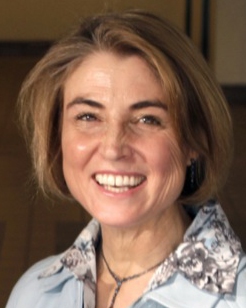Saturday, July 23, 2011 | 2 a.m.
Amodei campaign ad
Amodei on jobs
Sun coverage
Sun archives
- Latest Amodei campaign commercial focuses on jobs (7-20-2011)
- Washoe County local luminaries come out for Amodei (7-20-2011)
- Marshall tops Amodei in fundraising for special election (7-15-2011)
- Kate Marshall late to the party with campaign website (7-14-2011)
- Amodei’s ad is outrageous and outrageously effective (6-24-2011)
- Campaign ad may boost Amodei but alienate the Chinese (6-22-2011)
- State Treasurer Kate Marshall jumps into U.S. House race (5-4-2011)
The idea that “all politics is local” has been a political article of faith since longtime House Speaker Tip O’Neill coined it back in the ’80s.
In Nevada’s 2nd Congressional District, though ... not so much.
State Treasurer Kate Marshall and former state Sen. Mark Amodei are facing off in a campaign that’s being overwhelmed by national, not local, issues: a product of both the timing of the special election and the temptation to campaign for a federal seat by focusing on Washington’s faults — and promising competing visions of change.
The national tone was set by Amodei’s opening campaign commercials. In the first, which depicted a Chinese army marching on the U.S. Capitol, neither Amodei nor anyone else featured in the commercial mentioned Nevada; in the second, in which Amodei made a promise never to vote to raise the debt limit, he referred to Nevada’s woes — but only in passing.
Marshall, meanwhile, has been referencing another national debate — the one over Social Security and Medicare — to appeal to Nevada voters; but also joining the national fight over federal spending whenever she has to answer Amodei’s charge that “like Harry Reid and Barack Obama, Kate Marshall supports raising Obama’s debt ceiling.”
“If you want to look at Washington, you can say it lurches from crisis to crisis,” Marshall says of the fiscal concerns of the nation, taking care to separate herself from her party’s leaders in Washington. But on other topics, when she speaks to Nevadans, she snaps right to the big picture, saying: “They really have two major concerns, Social Security and Medicare.”
Social Security and Medicare are at the center of the debate over how to turn the corner on the country’s mounting deficit and spending problems without pulling the rug out from under those most dependent on government assistance. The debate has grown more heated during the standoff in Washington over how to raise the national debt limit by the Aug. 2 default deadline. It’s dominating the airwaves and much of the conversation in this race.
“It’s a congressional race, so those are the issues you’re going to get,” said Peter DeMarco, a spokesman for Amodei, who has pledged that he would vote against any plan to increase the debt limit. It’s a position that in Washington, only the most conservative and Tea Party-affiliated Republicans have publicly adopted.
His campaign declined several requests to make him available for an interview.
“It’s all economics,” DeMarco said: “Who’s going to be in the best position to reduce taxes and reduce out-of-control spending.”
But Nevada’s primary economic concerns are closely tied to foreclosures and jobs.
Marshall doesn’t disagree with Amodei on the importance of the economy in this race. But she says Amodei isn’t promoting solutions to Nevada’s economic problems because his record on that front wouldn’t hold up to hers.
“It is easier for me (to discuss economic issues), perhaps, because last legislative session I did get a jobs bill passed here in the state,” Marshall said, citing her “fiscal discipline and experience.”
Marshall has hung much of her reputation on her ability to make money for the state even though employment and foreclosure rates were worsening, and that she pushed a bill through the Legislature last session that would set up trust funds to lure companies to Nevada, where they could hire workers, and then use the interest to fund the state’s public schools.
“I can take what I’ve done and talk about how we have to do that on a larger scale,” she said.
Amodei has attacked Marshall’s moneymaking record, pointing out that she lost $50 million on a bad Lehman Brothers deal. Marshall, meanwhile, has scoffed at Amodei making low-tax promises when he voted to raised them during his tenure in the state Senate.
Although Marshall’s stump speech weaves her record into her campaign platform, Amodei’s mostly hedges on promises of what he’d do in Washington.
Experts say that Amodei’s ripped-from-the-day’s-headlines tactics might make it easier for him to appeal to voters who are following the national crisis — and know the country is following the 2nd District race until September.
“The federal issues are more exciting,” said Eric Herzik, a political-science professor at UNR. “Any race, any national office race, is now an immediate referendum on the main topic of the day.”
The national political parties are watching the race to see how their campaign messages play with voters.
The Democratic Congressional Campaign Committee is still banking on the issue it credits with bringing the party an upset victory in New York’s 26th District: Medicare. “For as long as Republicans continue to press to reduce or end Medicare, it will be our No. 1 issue,” committee Chairman Steve Israel told the Sun this month.
For Republicans, the message is the debate on the debt.
“I think the main issue, at least on the national level, is going to be spending and the debt limit,” said National Republican Congressional Committee spokesman Tyler Houlton, adding that the connection to Nevada’s worst-in-the-nation lot is obvious.
“The government is already too big and their policies affect everyone in this nation, that’s the connection,” Houlton said.
Nevada’s issues are the country’s issues, on steroids. The state doesn’t appear poised to shake its worst-in-the-nation unemployment and foreclosure figures either, especially with the recent uptick in jobless numbers.
The upshot? The race is a test ground for the national parties to see how their competing messages resonate.
Nationally, those messages have been ratcheting up in the past few days, and the candidates have been able to draw the connections for voters: Amodei, in his latest campaign advertisement, says he’ll “create Nevada jobs by reducing taxes and regulation in Washington” and by freeing up federal land for more ranching, mining and energy development.
Marshall, whose campaign has only released an introductory ad, unveiled a website last week that stressed her conviction on the Medicare debate (she’ll “stand up to anyone who tries” to change it) and honed her national-to-local economic argument, promising to create tax incentives and reduce overregulation to help small businesses grow, and yes, to “eliminate wasteful spending.” She also promises to promote conservation, gun rights and education.
On his website, Amodei focuses on pledges to keep taxes and gas prices low, invest in the military and national security, and work to repeal the health care law.
But if Nevada’s main problems are the national issues du jour, the candidates may face an impossibly large task, experts said.
“I don’t think Amodei or Marshall really have any answers for Nevada’s economic problems,” Herzik said. “Amodei talks about grand federal policies and says ‘no new taxes is good,’ the assumption being that will somehow trickle down to Nevada.
“Marshall, on the other hand, never mentions she’s a Democrat, talks about what a sound financial manager she’s been ... and says nothing specific about how she will address the housing crisis.”
That, combined with the pressure for both candidates to appeal to the more conservative factions of their party, make Nevada’s 2nd District — which has always gone Republican — a bad barometer for the mood of the nation’s voters, he said.
“It’s a lousy indicator ... except if Kate Marshall were to win,” Herzik said. “Republicans can really misinterpret what (a win) means ... in this very conservative and Republican district out West. But I would love to hear how John Boehner and the Tea Party could spin (a loss). It would be such a rejection.”



Join the Discussion:
Check this out for a full explanation of our conversion to the LiveFyre commenting system and instructions on how to sign up for an account.
Full comments policy